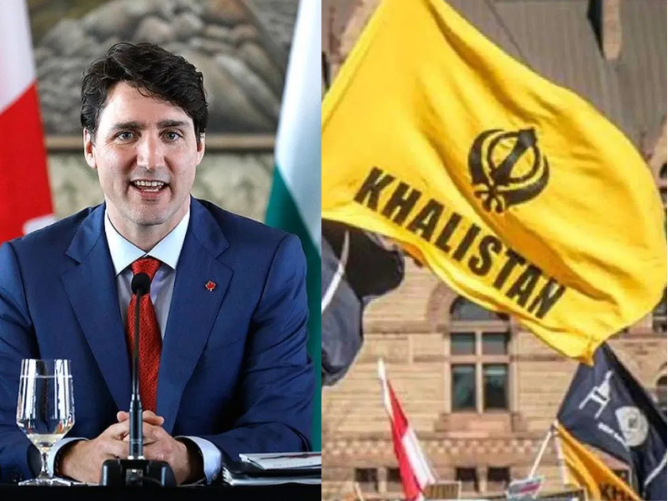Virendra Pandit
New Delhi: The India-Canada row over the Khalistan issue revived on Friday when New Delhi rejected Ottawa’s attempts to portray its pullout of 41 diplomats as a violation of the Vienna Convention, but said India has no plans to affect ongoing trade and investment between the two democracies.
“We reject any attempt to portray the implementation of parity as a violation of international norms,” the Ministry of External Affairs said in a statement.
No international norms were violated in India seeking parity in the mutual diplomatic presence in New Delhi and Ottawa. The MEA statement came hours after Canada withdrew 41 diplomats, accusing India of violating the Vienna Convention on Diplomatic Relations.
“The state of our bilateral relations, the much higher number of Canadian diplomats in India, and their continued interference in our internal affairs warrant a parity in mutual diplomatic presence in New Delhi and Ottawa,” it added.
Earlier today, Canadian Foreign Minister Melanie Joly announced that 41 diplomats have been recalled from India.
“I can confirm that India has formally conveyed its plan to unethically remove diplomatic immunities for all but 21 Canadian diplomats and dependents in Delhi by tomorrow, October 20. This means 41 Canadian diplomats and their 42 dependents were in danger of having immunity stripped on an arbitrary date. And this would put their personal safety at risk,” she said.
“Immunities allow diplomats to do their work without fear of reprisal or arrests from the country they’re in. They are a fundamental principle of diplomacy and this is a two-way street. They only work if every country abides by the rules. A unilateral revocation of diplomatic privilege and immunities is contrary to international law. It is a clear violation of the Vienna Convention on Diplomatic Relations and threatening to do so is unreasonable and escalatory,” she added.
Canada also paused all in-person services at its consulates in Mumbai, Chandigarh, and Bengaluru and urged its citizens in these three cities to exercise caution. All Canadians in India have been asked to contact the High Commission in New Delhi in case they need assistance.
India last month asked Canada to reduce its diplomatic presence in the South Asian country after Prime Minister Justin Trudeau claimed to have ‘credible’ evidence of a potential link between Indian agents and the murder of a Canadian citizen, Khalistani extremist Hardeep Singh Nijjar in June. India denied any connection with his death outside a Sikh temple in Vancouver. He apparently died in a gang war, some reports said.
While back-channel officials from both India and Canada are trying to resolve the diplomatic dispute and bring the bilateral relations back to normal, the media reported on Friday that New Delhi has no plans to impose curbs on imports or investments from Ottawa.
The political uproar over the Khalistan issue and the bruised diplomatic relations wouldn’t spill over into either a bilateral trade dispute or impact investment.
Canada had earlier paused trade treaty talks with India.
India imports potash, lentils, and energy products such as coal, coke, and briquettes among other goods from Canada, and exports to it consumer goods, garments, and engineering products such as auto parts, aircraft equipment, and electronic items.
Bilateral trade between Canada and India touched USD 8 billion in 2022.
Canada has invested more than USD 3.6 billion in India with over 40 percent of that being in services and infrastructure, according to Invest India.
There’s been no disruption in imports from Canada, and that’s likely to continue, the sources said.
Although Canadian lentil sales to India slowed down last month due to concerns over the diplomatic spat, New Delhi hasn’t asked importers to refrain from buying the protein-rich commodity from Ottawa.

